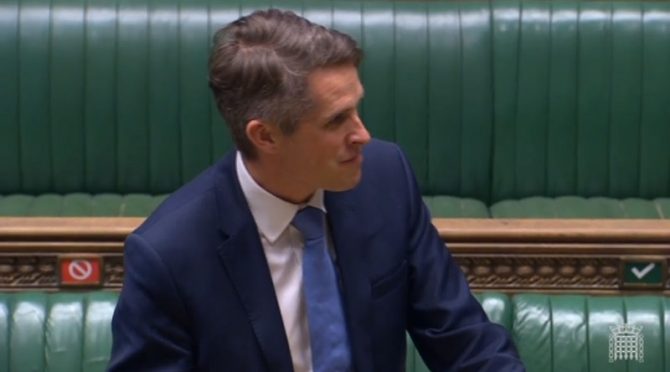It was the Treasury’s decision to pull colleges from the Department for Education’s £1 billion Covid-19 catch-up plan, FE Week understands.
Last week, the DfE sparked outrage after telling the press that 16 to 19 providers would be included in the support package only to send out a “correction” two hours later that removed them.
Ministers have so far refused to say why colleges were suddenly snubbed at the eleventh hour despite pressure growing on them to provide answers. A petition has also since been launched by a former principal calling for the decision to be reversed.
But FE Week understands it was actually the Treasury’s call.
The Treasury did not deny that they overruled the DfE when approached for comment. A spokesperson would only say they have nothing further to add on this additional to the education secretary Gavin Williamson’s words in the House of Commons yesterday.
Williamson had dodged multiple questions from MPs who challenged him on the exclusion of colleges from the £1 billion scheme during education questions.

The very first question came from Wes Streeting, the MP for Ilford North, who said: “Last Thursday the incompetence, or was it a row between DfE and the Treasury, that saw at half past six the DfE press release announcing support including early years and post-16 education, only by half past eight to see a support package only for schools.
“Isn’t it time for the secretary of state to get a grip and get the action that we really need?”
But Williamson had nothing to say about colleges in his response: “This is the party and this is the government that is absolutely committed to closing the gap between those who are most advantaged and those who are most disadvantaged.
“That is why we are not just talking about it like the party opposite did, we are driving up standards in education and in schools. That’s why we’re spending an extra billion pounds in terms of raising standards and helping those youngsters who have been impacted by it.”
Pressing Williamson on the same topic minutes later, shadow education secretary and MP for Salford and Eccles, Rebecca Long-Bailey, asked: “What on earth happened?”
But again the education secretary ignored the question and instead criticised the Labour Party, stating: “Maybe it would be nice if the lady opposite could welcome such proposals.”
Later in the session, Chesterfield MP and shadow apprenticeships and lifelong learning minister Toby Perkins asked how the government can “justify leaving them [16 t 19 providers] out of that announcement when a plan for schools was in place last week?”.
Skills minister Gillian Keegan replied this time and said the DfE would provide more details “soon” on how 16 to 19 providers can “further support students” needing to catch up on the education they have lost due to Covid-19.
“I think it’s clear the initial focus has been on the school catch-up. There has been a great response form the further education sector.
“They were quick to move online, they have provided a wide range of engaging and innovative classes but we do recognise the need for catch up, particularly those starting college from school. We are working to see what more support we can give to make up for the disruption due to Covid-19.”
Under the DfE’s £1 billion proposal, all state primary and secondary schools will split £650 million in additional funding for the 2020-21 academic year to help their pupils catch up on education missed as a result of the coronavirus pandemic.
The remaining £350 million will pay for the establishment of a National Tutoring Programme, which will run for the duration of the next academic year and give schools access to subsidised tutoring sessions and free coaches for up to two million disadvantaged pupils.
The Association of Colleges and Sixth Form Colleges Association had been in discussions with the DfE about the support package and both expected their members to be included in the announcement.
A petition calling on the government to reverse their decision to drop 16 to 18-year-olds from the funding has since been launched by Christine Megson, an education consultant and former Stafford College principal.
Over 200 people have so far signed the petition which states: “I’m a former college principal and a grandparent of a 16-year-old. I believe the exclusion of these young people is wrong.
“The government should make sure that these young people also get the support they need to address their lost learning, so that the coronavirus crisis doesn’t hold them back in the future.”
